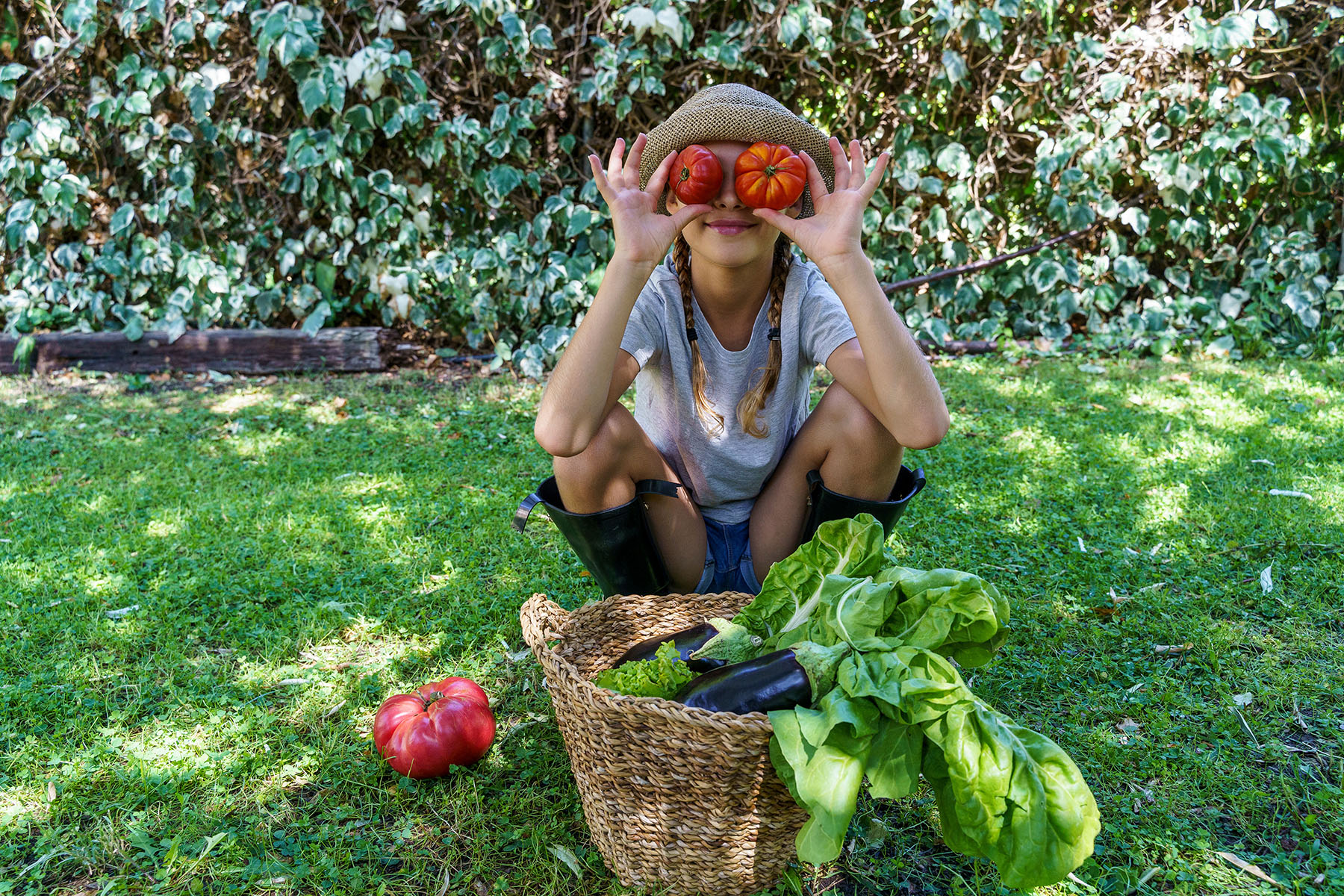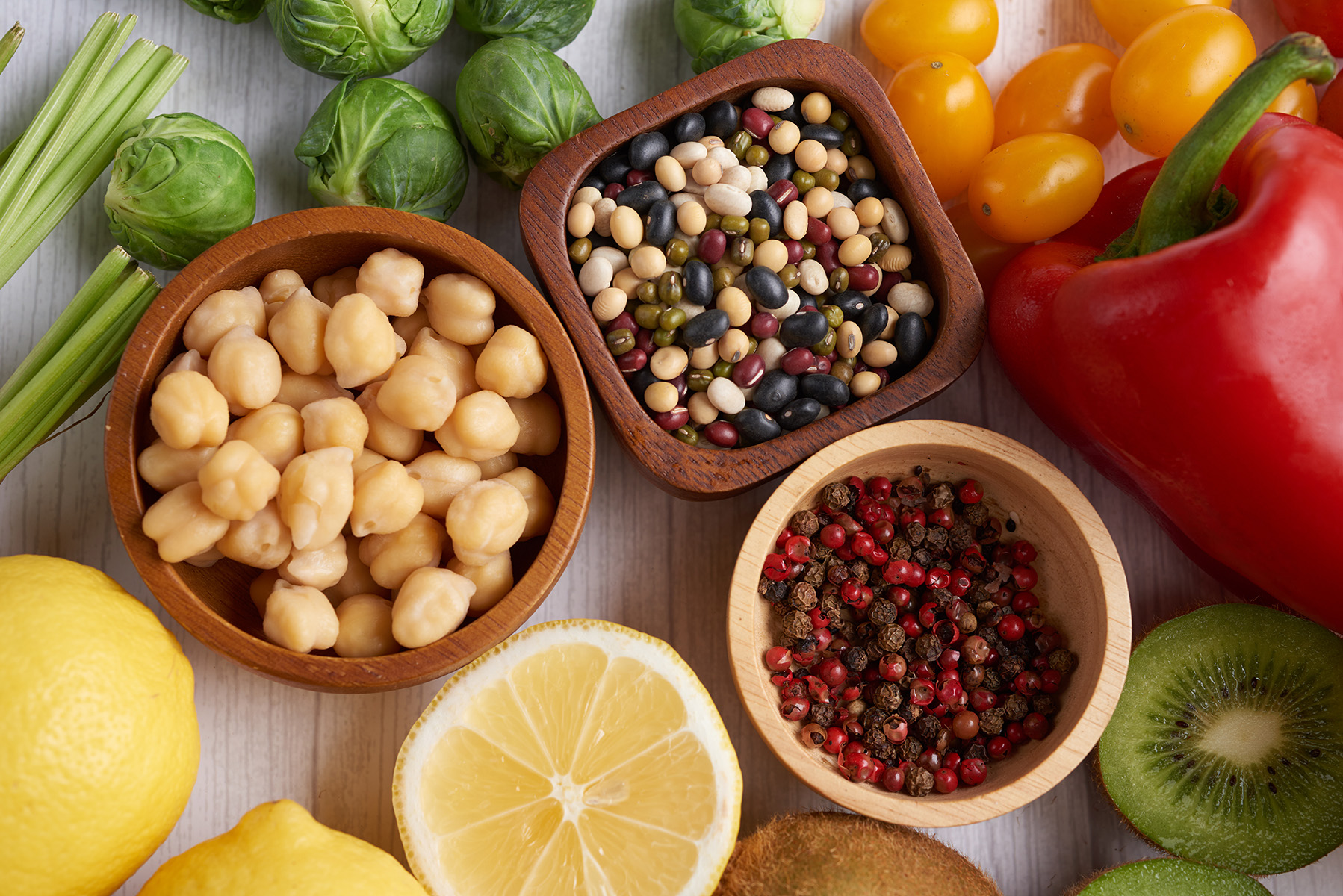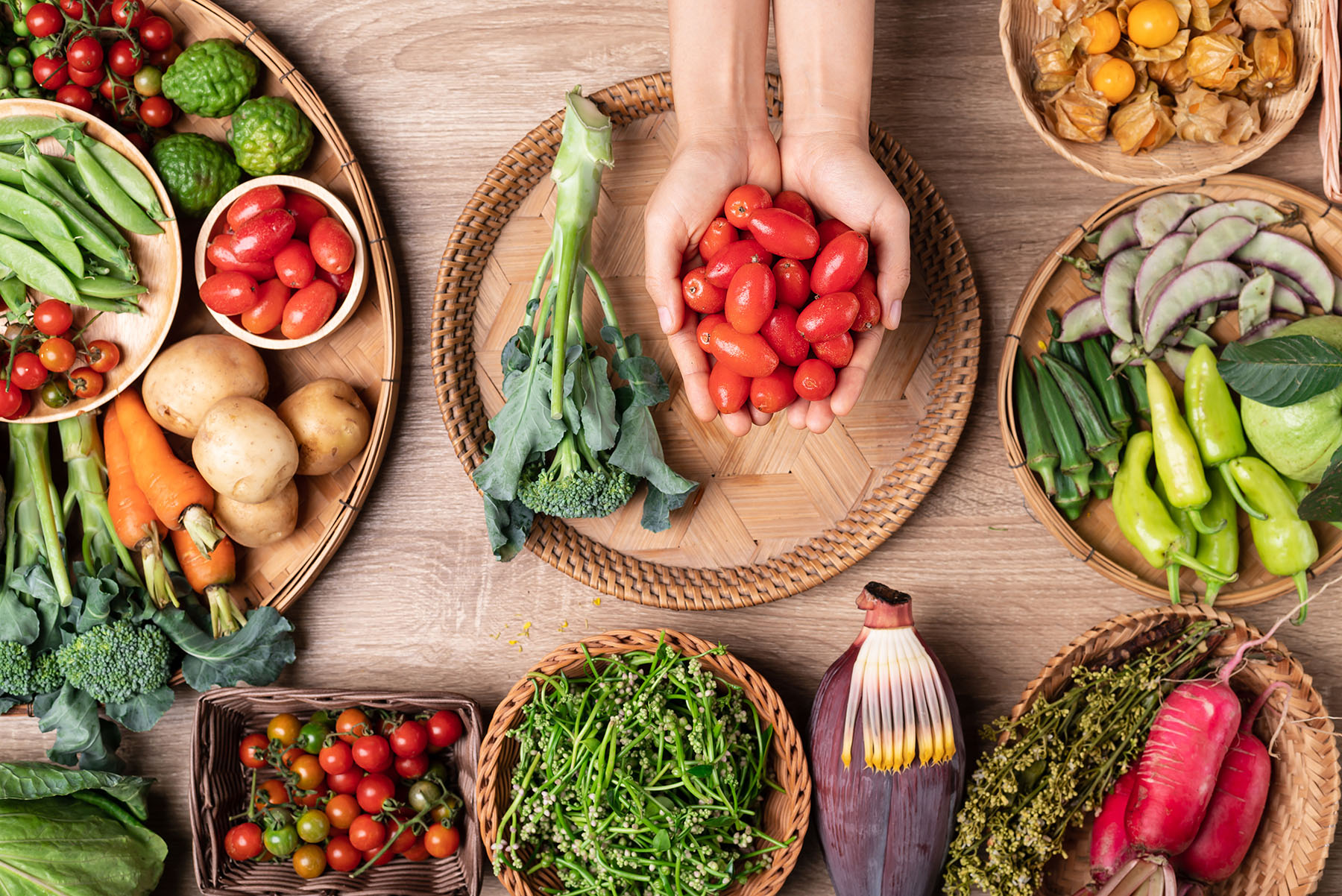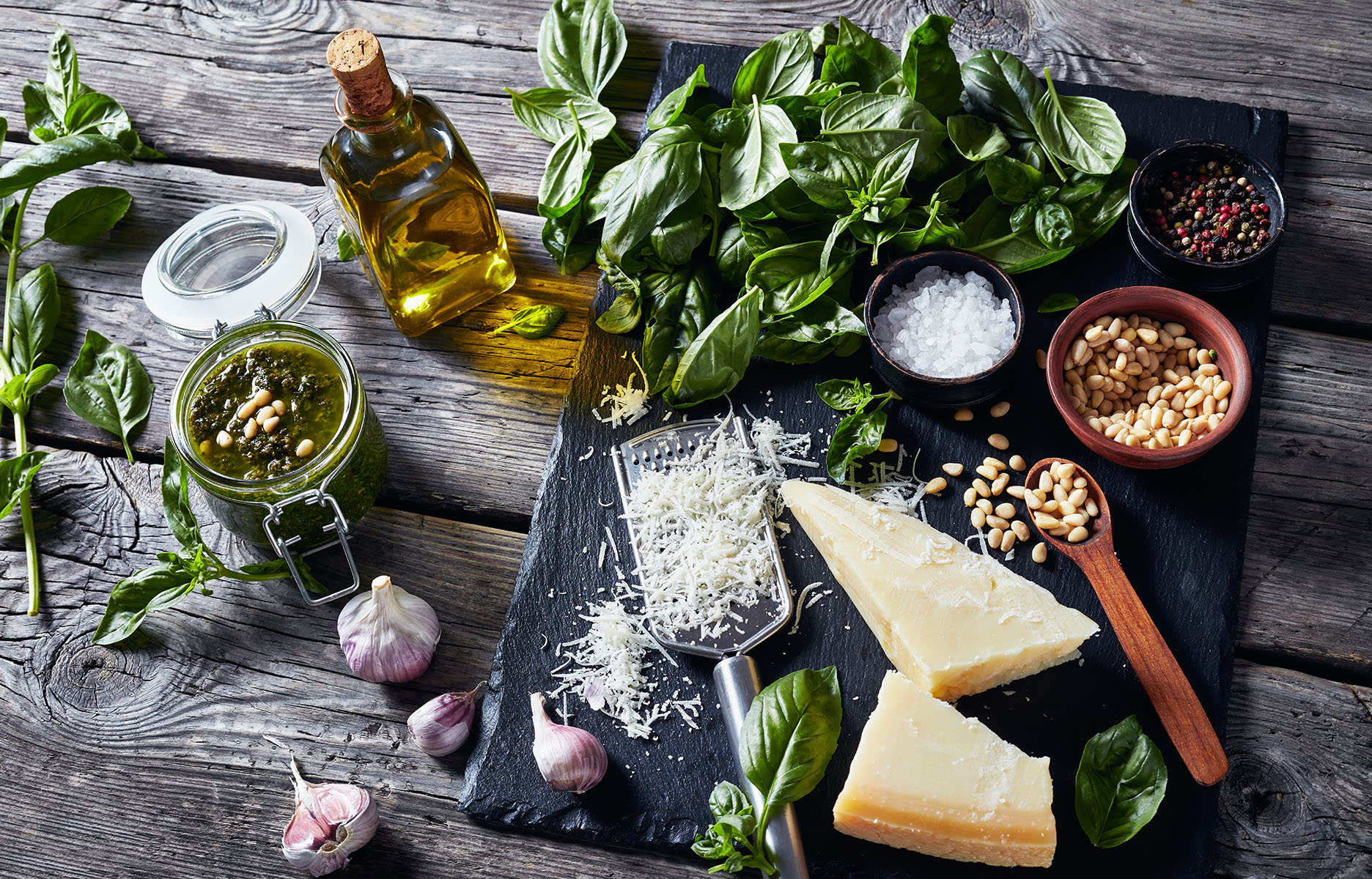What are climate-friendly recipes?
A climate-friendly recipe is a recipe that reduces the environmental impact of food consumption.

- Using organic ingredients
- Selecting seasonal and regional ingredients
- Using plant-based food
- Avoiding food waste
WHY IS A CLIMATE-FRIENDLY DIET IMPORTANT?
A climate-friendly diet is primarily important because global eating habits have considerable effects on the environment – but not only that. A climate-friendly diet is very beneficial to our health.

The climate crisis and its effects on the environment have severe consequences for us all and can lead to a number of problems, including extreme weather events, a scarcity of foodstuffs, and increased sea levels. A climate-friendly diet can help reduce the ecological footprint of food production and combat climate change.
And our bodies also profit from a climate-friendly way of eating. Nutrition that is rich in vegetables can help reduce the risk of heart disease, diabetes, and other chronic illnesses.
The connection between nutrition and climate change
Our diet has a direct effect on climate change. Especially the production of meat and milk products is very energy- and resource-intensive, because it requires large amounts of water, fodder, and land. Furthermore, farm animals produce methane, a gas that harms the climate, through their digestion.
By opting for a climate-friendly diet, we can reduce our ecological footprint and help protect our planet.
A climate-friendly diet is based on plants and reduces the consumption of animal products. Using seasonal and regional ingredients also minimises transport efforts, leading to reduced carbon emissions.

How our diet affects the environment
Agricultural production and the transport of food contribute significantly to environmental pollution, especially regarding climate change, biodiversity, and the use of resources:
- Climate change: The production of meat and dairy products is particularly responsible for a large part of greenhouse emissions, which contribute to the climate crisis.
- Biodiversity: Intensive farming and the use of pesticides and fertilisers can lead to a loss of species diversity and affect important ecosystems.
- Water use: Agricultural production requires large amounts of water, especially to produce meat and dairy products.
- Soil quality: Intensive farming can affect the quality of the soil and lead to erosion.
- Food waste: Food waste is a significant problem that leads to unnecessary environmental pollution through the production of food and the disposal of waste.

Foods that are especially climate-friendly
Here are some climate-friendly foods that are good choices for a sustainable diet:
- Fruits and vegetables
- Legumes
- Whole grain products
- Nuts and seeds
- Mushrooms
These foods are not only more climate-friendly, but are also healthy and delicious. By increasing the amount of vegetables in our diets, we can reduce our ecological footprint while promoting our health.
The climate-friendliness of animal- and plant-based foods
Animal- and plant-based foods are vastly different in terms of their friendliness to the climate. In general, plant-based foods are more climate-friendly than animal products.
The reasons for this include: Animal products such as meat, dairy products, and eggs produce considerably more greenhouse gas emissions than plant-based foods. This is because animal husbandry produces large amounts of methane and nitrous oxide, which are much stronger greenhouse gases than carbon dioxide.
Furthermore, producing animal products requires considerably more resources, such as water, energy, and land, compared with producing plant-based food. Producing meat in particular requires considerably more resources than producing plant-based food.
Animal husbandry itself produces considerable amounts of waste and greenhouse gas emissions, which can impact the environment. In general, plant-based foods produce less waste and have a smaller ecological footprint. Intensive animal husbandry can lead to deforestation and a loss of habitats, which can harm biodiversity.


Climate-friendly ingredients for your kitchen: Superfoods and regional products
‘Superfoods’ are foods that are considered especially nutritious and healthy. Make room for the following superfoods in your shopping cart – preferably the next time you go shopping:
- Quinoa
- Cabbage
- Oats
- Lentils
- Mushrooms
- Blueberries
A climate-friendly recipe you can make everyday: Pesto made of basil and sunflower seeds
Basil pesto tastes good, is easy to prepare, and can be used for many purposes, such as sauces, dressings, and dips. This climate-friendly pesto recipe is really easy to recreate.Ingredients:
- 2 cups fresh basil
- 1/2 cup roasted pine nuts
- 1/4 cup sunflower seeds
- 1/2 cup grated Parmesan cheese
- 2 garlic cloves, minced
- 1/2 cup extra virgin olive oil
- Juice from half a lemon
- A pinch of salt and pepper to taste
Instructions:
- Wash basil and pat dry.
- Roast the pine nuts and sunflower seeds in a pan.
- Put grated Parmesan cheese and the minced garlic in a food processor and mix well.
- Add the basil to the roasted seeds and mix again until everything is finely minced.
- Add the olive oil and lemon juice and mix until the pesto has the desired consistency.
- Add some salt and pepper to taste and serve.


Tips for environmentally conscious meal preparation
We’ll give you 5 additional tips to help you prepare your meals in a more environmentally conscious way:
- Use natural detergents for washing.
- Use reusable containers for storing leftovers.
- Reuse your leftovers.
- Take advantage of your oven's residual heat by turning the oven off before your food is completely ready and letting it finish in the residual heat.
- Use alternative cooking methods that use less energy than conventional methods. You can prepare food in a slow cooker or a solar oven, for example. These methods are more energy-efficient, which means a smaller carbon footprint.
5 ideas for climate-friendly recipes
We’ll be glad to give you more ideas for your next climate-friendly dishes:
- Pan-fried vegetables
- Veggie burger
- Lentil soup
- Roast pumpkin
- Sushi rolls with vegetables

Climate-friendly recipes from Nolte Küchen
In the Nolte Blog you’ll find some delicious and climate-friendly recipes to recreate for all occasions.
Books about a climate-friendly diet

- ‘Klimafreundlich essen: Gut für dich und gut fürs Klima’ by Eaternity This book deals with the connection between nutrition and climate change. It contains tips and recipes for a climate-friendly diet and provides a comprehensive overview on the topic.
- ‘Wie wir die Erde retten, indem wir weniger Fleisch essen’ by Jonathan Safran Foer In this book, the author deals with the role of meat in our diet and how consuming meat influences climate change. It offers insight into industrial animal husbandry and provides tips for plant-based nutrition.
- ‘Klimafreundlich genießen: Saisonal, regional und bio’ by Maria Flachsbarth This book describes how we can enjoy a climate-friendly diet by choosing seasonal, regional, and organic food. It contains recipes and tips for buying and preparing climate-friendly food.
